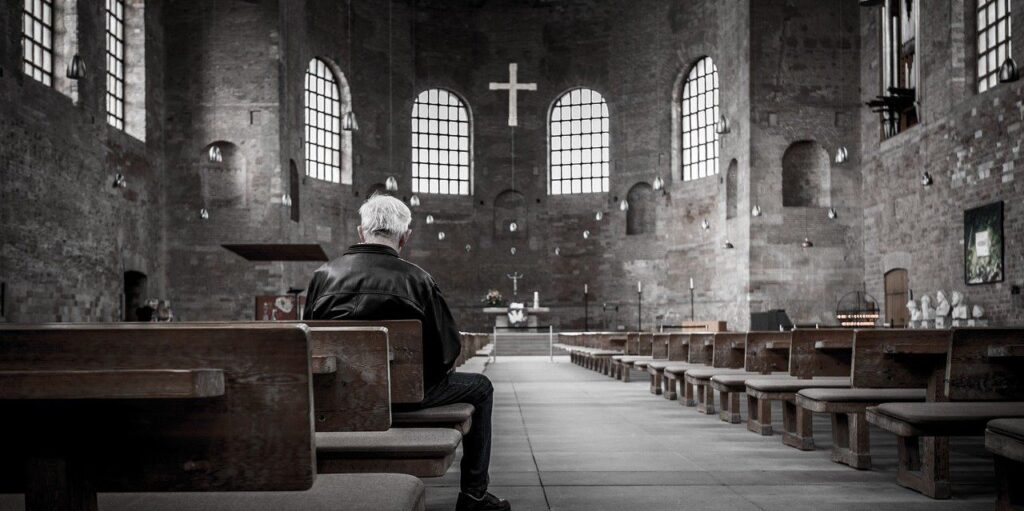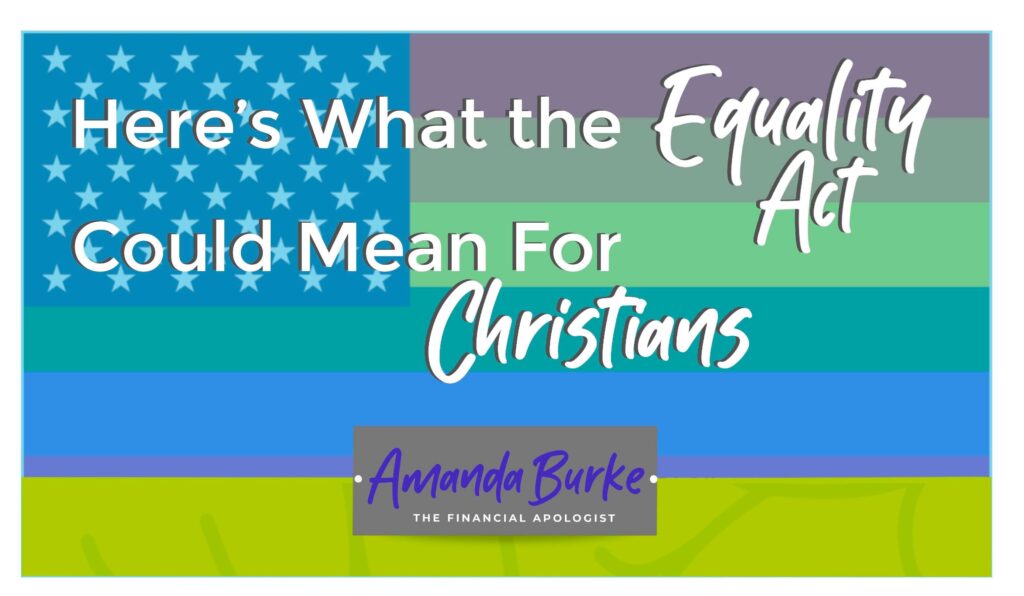The House of Representatives recently passed H.R. 5, dubbed “The Equality Act,” to amend several existing anti-discrimination statutes to the benefit of LGBT people. The title of the bill is innocuous enough, but the provisions extend to astounding places in American life, subjecting citizens to a new level of federal regulation and control. This represents a very clear threat to Christians and the ability to freely practice and live out our faith.
What is the Equality Act?
The highlights of the bill, as discussed by Reason Magazine, amend certain portions of the Civil Rights Act and the Fair Housing Act. In addition to race and sex, sexual orientation and gender identity are added to these statutes. This means that anyone who “self-identifies” as a man or a woman, regardless of their biological sex and chromosomes, would have a cause of action if someone refuses to service them for a service designed for one gender only (mostly, girls and women).
What Will Its Effects Be?
Indeed, the effects of the bill are so extreme that one author has dubbed it the “Destroy Our Daughters Act.” It would require employers to grant biological men unprecedented access by law to the intimacies of girls’ lives, or face the force of the federal government for refusing. Even some left-wing feminist groups are taking issue with the provisions of this bill. (That’s how you know it’s really bad).
Almost every single aspect of economic life is covered by this bill. Whereas previously, anti-discrimination statutes covered places know to be places where invidious discrimination took place, the term “place of public accommodation” now encompasses nearly all providers of any good or service.
This means that anyone can be forced to provide a service to someone, even if there are sincere and irreconcilable religious grounds for doing so.
Jack Phillips, who owns Masterpiece Cakeshop in Colorado, would be forced to cater same-sex weddings (the question has not yet been truly resolved by the Supreme Court). Christian counseling organizations would be forced to work with same-sex individuals in relationships the counselors cannot agree with. Christian adoption agencies could be forced to handle adoptions for those who reject the gender assigned to them by God at birth.
The targeting may even reach the point of attempting to force Christian schools and churches to give membership and leadership positions to people living unbiblical lifestyles and who believe things contradicting their statements of faith.
The Equality Act’s Attack on Religious Freedom
For nearly 30 years, religious beliefs have had rigorous protection at the federal level through the Religious Freedom Restoration Act of 1993 (RFRA). Passed nearly unanimously in both houses of Congress and signed by President Clinton, the law requires that all federal statutes imposing burdens on religious beliefs be subject to strict judicial scrutiny. The law must have a compelling interest, and it must be achieved by the least restrictive means.
But the Equality Act specifically precludes RFRA as a defense. It is an extremely intolerant and uncompromising statute that demands conformity on the issues of gender identity and sexual orientation. The government is becoming an overt actor in the culture war and is being weaponized against Christian believers and principles that billions of people have held for thousands of years.
Is There Hope for Religious Freedom?

There are a few silver linings, though. One, this bill may not be able to get through the Senate, where the chamber is more evenly split than the House. Some more moderate Democrats may not approve of this sweeping measure.
Second, religious schools and churches have constitutional protection available to them through the ministerial exception. For many years, religious freedom was robust and widely accepted. But in 1990, it was neutered in the case of Employment Division v. Smith. This case formed the doctrine regarding neutral laws of general applicability, that such laws only receive the lowest level of scrutiny when imposing a burden on religious practice.
Two Supreme Court decisions carved out an exception for religious entities like schools and churches: Hosanna-Tabor v. EEOC, and Our Lady of Guadalupe v. Morrissey. The Court held that certain religious organizations must be exempt from even neutral laws because of the nature of these institutions.
The ministerial exception would enable churches and religious schools to still practice their beliefs, including setting out qualifications for officeholders and members. But the attacks on religious autonomy will likely not stop merely because of this exception.
A Pluralistic Society Cannot Survive Without (Actual) Tolerance and Coexistence
We live in a pluralistic society. Gone are the days when nearly all Americans affirmed the existence of God or had some sort of religious identity. Many identify as atheists or with other non-Judeo-Christian religions. This necessarily means many different viewpoints and cultural practices.
Is it reasonable to expect that a multi-cultural society cannot have room for people to largely live their lives in peace? Is the idea of flexibility in the law to accommodate for religious beliefs and practices so far-fetched?
For some people, the answer is yes (at least for certain religions). In essence, LGBT dogma is being elevated to a special status of protection in the law. Girls are left exposed to either mentally ill or predatory men seeking to take advantage of them: from the field to the locker room.
The gender identity issue has become a massive firestorm in a fairly short amount of time. Christians need to think through this very carefully, because the nature of transgenderism causes inherent problems with Christian doctrine. God is infallible and makes no mistakes. For a person to claim they are a man trapped in a woman’s body, or vice-versa, is to deny God’s power and sovereignty at the deepest possible level.
People who profess and practice this type of lifestyle need our prayer and help to escape the dysphoria. To force Christians to cater to such delusions, especially ones that fly in the face of basic Christian beliefs, is not something we as believers can accept.
The future of the Equality Act in the Senate is unclear. But the rapid decline into degeneracy over the past 30 years since RFRA is troubling. At one time, nearly everyone agreed that religious freedom involved exemptions from even laws that were not directly targeting religion. Those days are gone, and the culture grows more and more hostile to the Christian worldview.
What’s Next?
So what is there to do? Know what you believe. Ensure your church has a strong statement of faith that informs the congregation and leadership how it would handle hypothetical situations the Equality Act contemplates. And take the position that this is not about animus to a certain type of person, but about being left to practice legitimate and sincerely-held religious beliefs as has been done for thousands of years.
At a certain point, we will have to decide to whom we will bend the knee. God or Caesar.


Pingback: The IRS May Have a Terrifying New Power Soon - TFA
Pingback: The IRS Wants to Spy On Nearly ALL Your Money Decisions